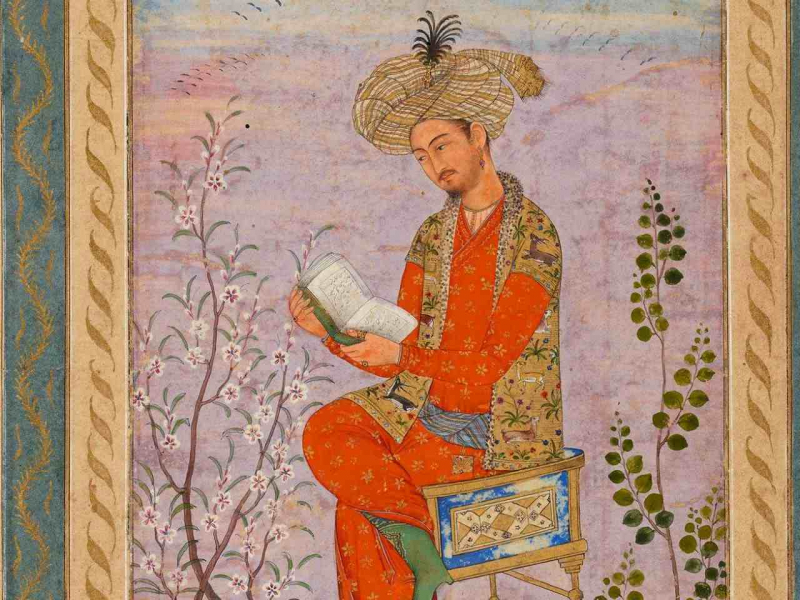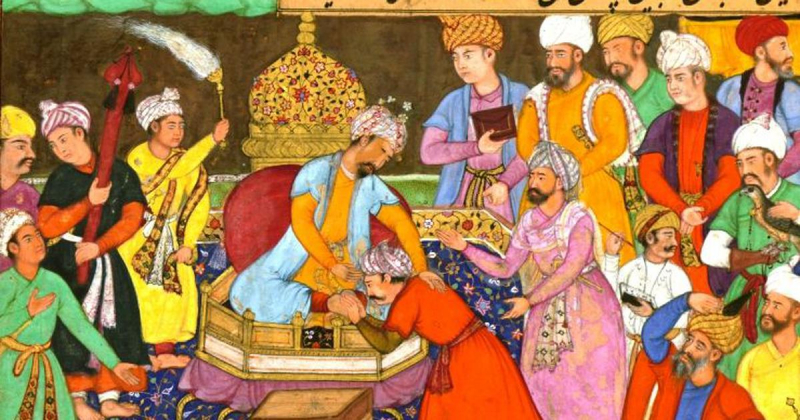Babur

A fifth-generation descendant of the Turkic conqueror Timur, whose empire was established in the late 14th century and spanned much of Central Asia and Iran, was Zahir al-Din Muhammad (throne name Babur). Babur, who was born in 1483 at the end of that empire, had to deal with the harsh reality that there were too many Timurid princes and not enough Timurid principalities. As rivals competed to overthrow one another and expand their spheres of influence, the result was a never-ending cycle of wars and political intrigue. Babur focused much of his youthful energy on attempting to seize and maintain control of Samarkand, the former center of the Timurid empire. In 1497, he held it, lost it, and then reclaimed it in 1501. In 1501, he was soundly defeated in battle by Muhammad Shaybani Khan, losing the coveted city as well as his native principality of Fergana. He gave up on his lifelong goal after one final futile attempt to retake Samarkand in 1511.
But Timurid life has second chances. Babur turned his attention to India from Kabul, which he had taken control of in 1504, and began conducting raids into the Punjab region in 1519. At the Battle of Panipat in 1526, Babur's army routed the Lodi Sultanate of Delhi's much larger force before moving on to seize Delhi. Babur ruled all of northern India from the Indus to Bengal when he passed away in 1530. The Mughal Empire had a defined geographic scope, but it lacked the organizational framework to be governed as a single state.
Babur is also remembered for his autobiography, the Baburnamah, which provides a sophisticated and amusing account of his travels, adventures, and financial ups and downs, as well as observations on local politics, society, and nature.







